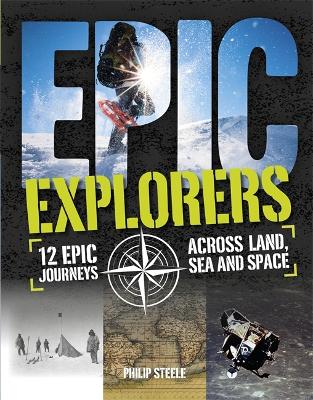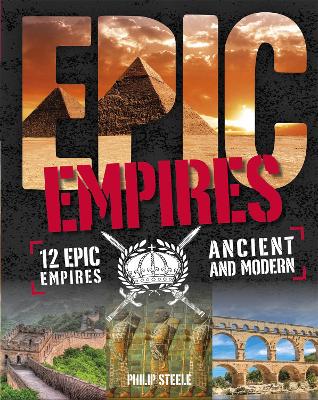Epic!
2 total works
Find out about 12 of the most incredible expeditions in history, from the ancient Egyptian voyage to the land of Punt around 1470 BCE to the Apollo mission to space in 1969; taking in Marco Polo's journey to China, the great 15th-century Chinese voyages, the Portuguese sailing around the Cape of Good Hope, the New World voyages, the circumnavigation of the globe, the mapping of the Pacific, the exploration of the American West, the exploration of Africa, the race to the South Pole and the descent into the Mariana Trench on the way.
Discover the dates and location of each expedition, the people involved and the distances travelled. Find out about the expedition leaders, Hatshepsut, Marco Polo, Zheng He, Christopher Columbus, Bartolomeu Dias, Vasco da Gama, Ferdinand Magellan, Captain James Cook, Meriwether Lewis, William Clark, Dr Livingstone, Henry Morton Stanley, Mary Kingsley, Robert Scott, Roald Amundsen, Jacques Picard, James Cameron, Neil Armstrong, Michael Collins and Buzz Aldrin.
Epic: Explorers also looks at the technology and vehicles involved in each expedition, from the Chinese treasure ships and the American canoes to the skis and dog sleds used on the South Pole expedition, and the rocket that carried the astronauts to the Moon. The dangers the adventurers faced are also catalogued, from the deserts, robbers and storms Marco Polo braved on his journey to China, to the lions, crocodiles and diseases Stanley and Livingstone battled in Africa.
A perfect resource for project work on exploration, geography or history, or simply a great leisure read, for children aged 9 and above.
For more epic events, try reading the other titles in the Epic series: Animal Migrations, Battles and Empires.
Epic: Empires focuses on 12 of the biggest and most incredible empires in the history of the world, from the first Babylonian Empire, founded in 1792 BCE, to the British Empire, which ended formally in 1997. On the way, it takes in ancient Egypt, ancient Persia, the early Indian empires, Imperial China, ancient Rome, the Mongols, the Ottoman empire, the Aztecs, the Inca, the Spanish empire and the British empire.
The book details the dates, location and extent of each empire, along with its most famous rulers. A timeline on every spread gives the key dates from each empire, and what happened when. Additional background information to each empire is also provided, including how each one came into being, who its enemies were, the gods its people worshipped, and how it met its downfall.
Epic: Empires also looks at the technology, advances and inventions that came out of each empire, from the paper, fireworks and compasses of imperial China to the sewers, roads and aqueducts of ancient Rome.
Infographic elements on each spread present information in a simple and highly visual way. Clear, concise text and a bright, appealing design make the book the perfect resource for project work on geography or history, or simply a great leisure read, for children aged 9 and above.
For more epic events, try reading the other titles in the Epic series: Animal Migrations, Battles and Explorers.

